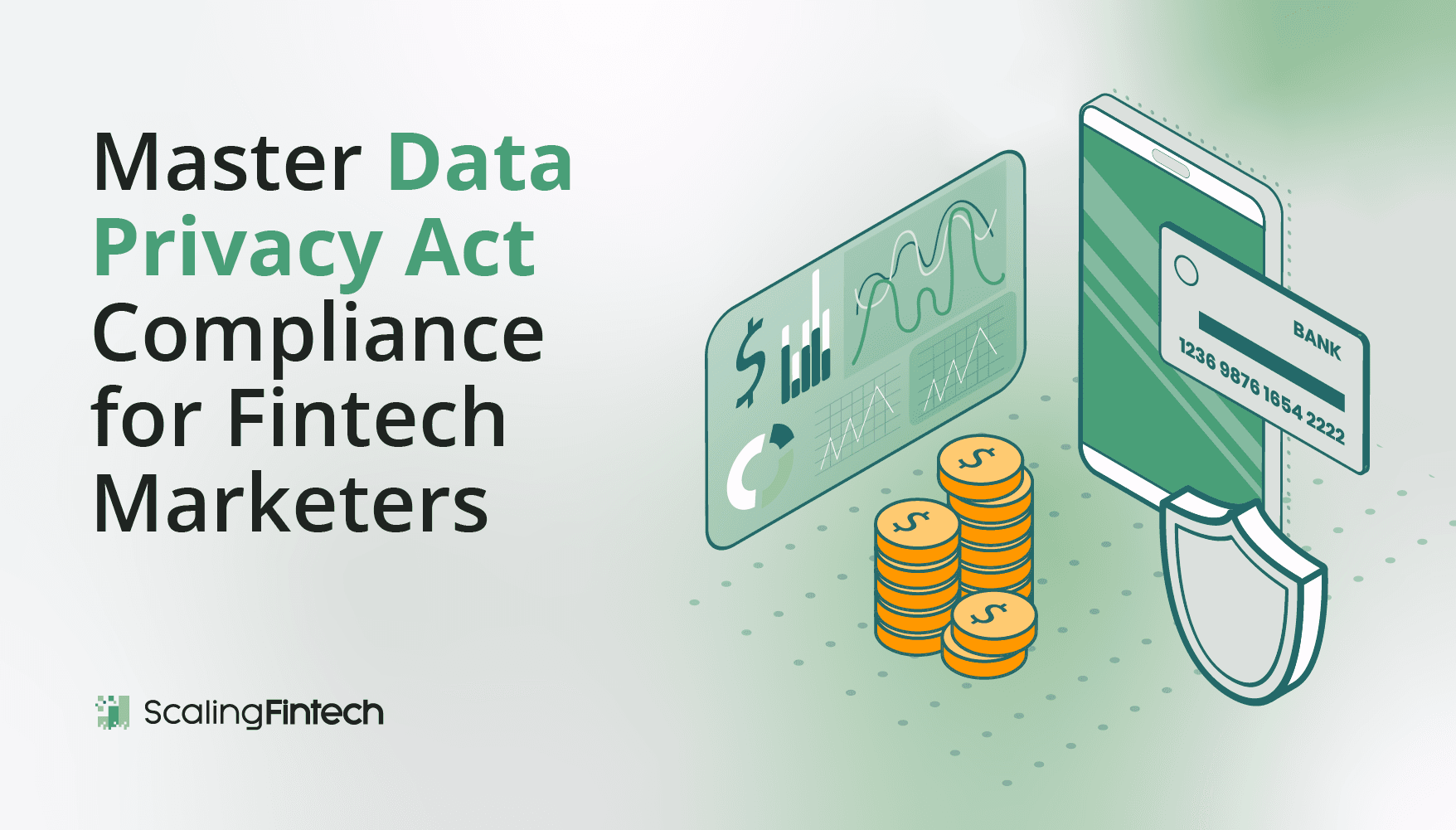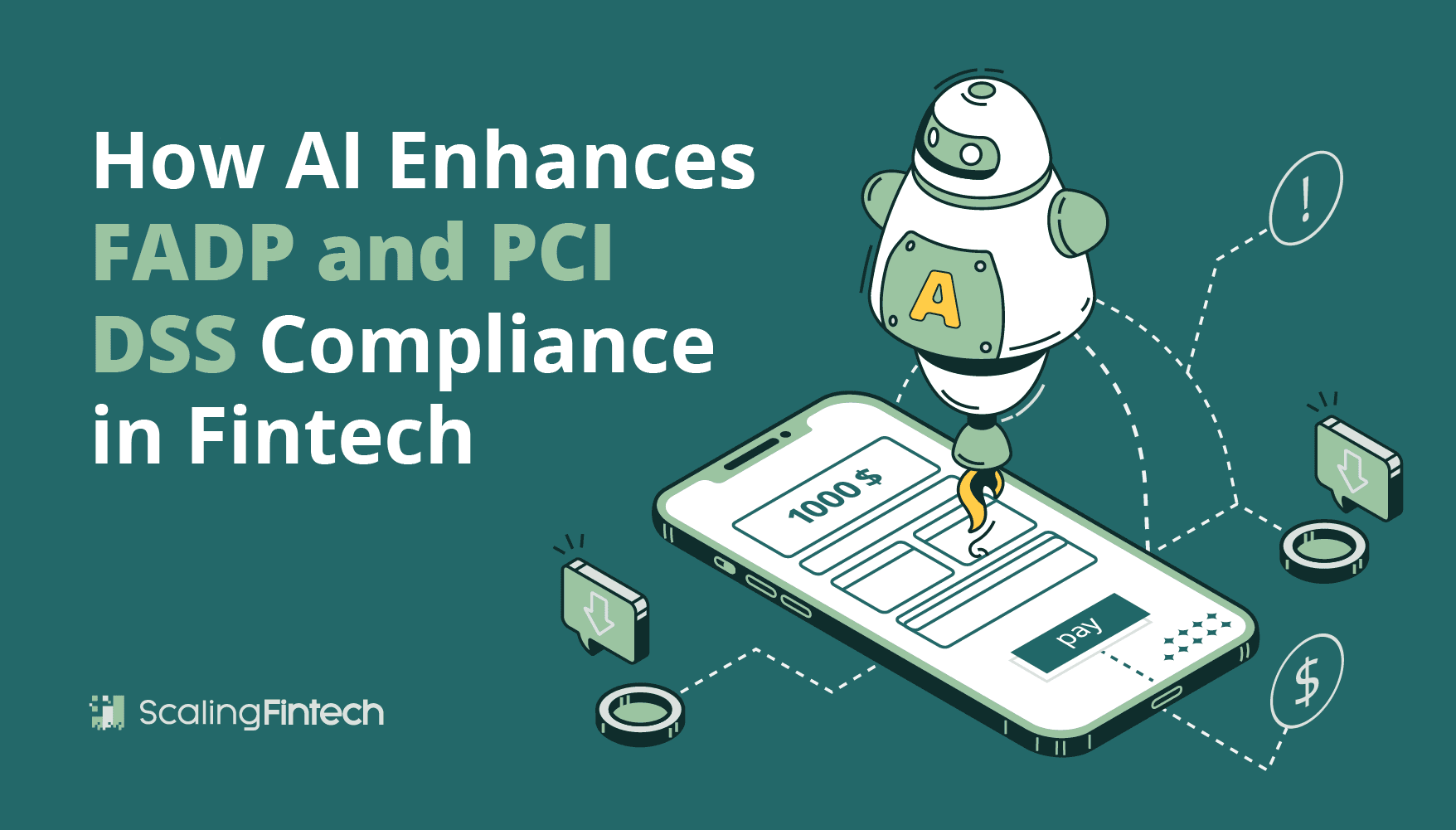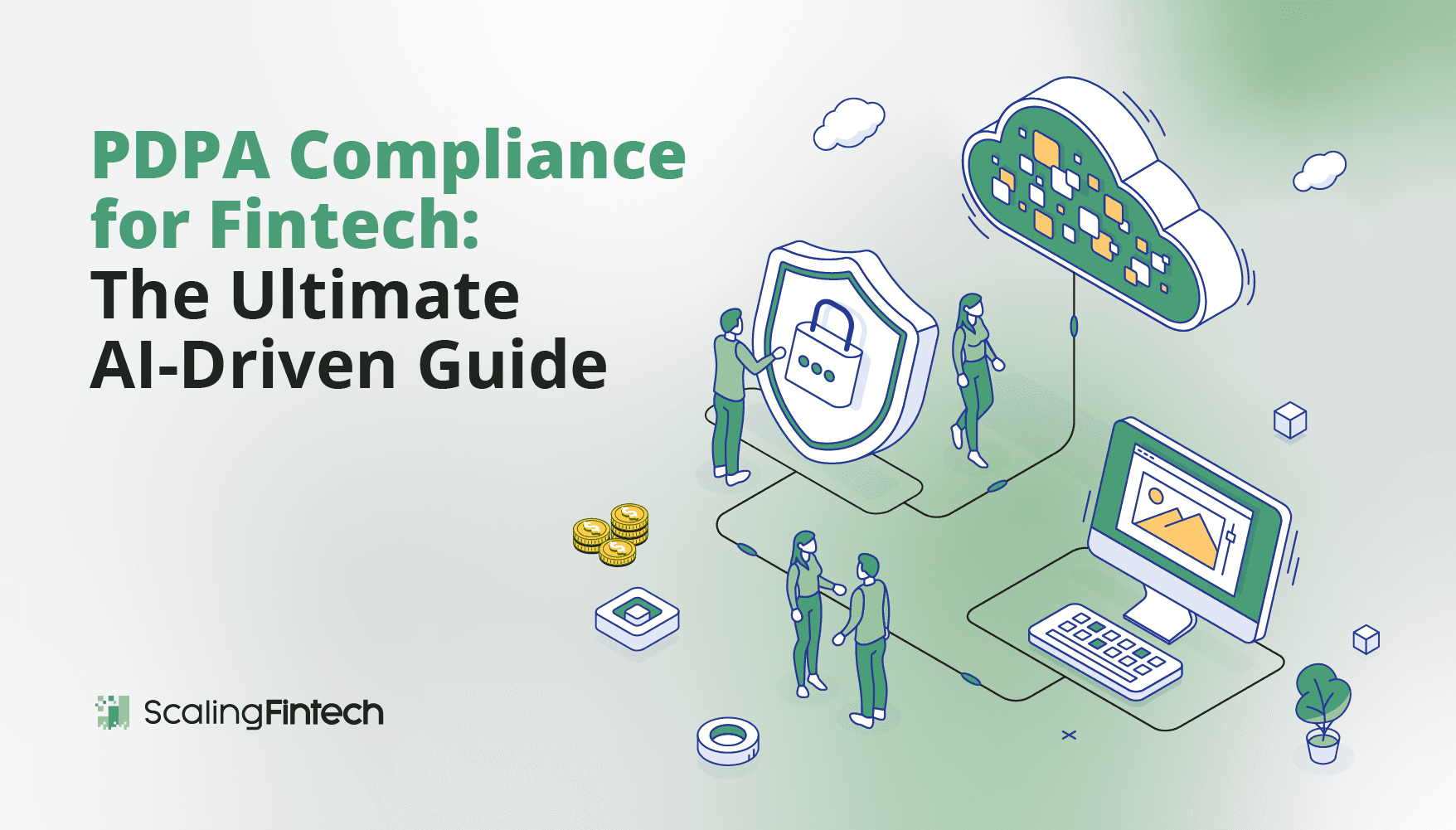Achieve Data Privacy Act of 2012 (DPA) Compliance in Fintech marketing. Learn key strategies, best practices for ethical AI, and actionable steps to protect customer data and personal information.
In fintech marketing, balancing effective strategies with compliance with data privacy laws, like the Data Privacy Act of 2012 (RA 10173), has become essential yet challenging. This guide explores essential compliance steps, best practices for ethical AI use, and actionable strategies to safeguard customer privacy and build sustainable, trust-based growth in the financial services sector.
Understanding the Data Privacy Act of 2012 and Its Impact on Fintech
The Data Privacy Act of 2012 (DPA), or RA 10173, sets rules to protect personal data in the Philippines. It supports both privacy rights and business growth. By following this law, fintech companies can gain the trust of consumers who are more aware of privacy issues.
But what is data privacy, and why is it crucial for the fintech industry?
Data privacy refers to the proper handling, processing, storage, and usage of personal information. The Data Privacy Act Philippines outlines three foundational principles for data processing:
- Transparency: Clearly communicate data collection and usage to customers.
- Legitimate Purpose: Process data only for declared and specific objectives.
- Proportionality: Limit data collection to what’s necessary and relevant for your campaign.
To comply with the data privacy law Philippines, fintech companies must appoint a Data Protection Officer (DPO) who oversees privacy compliance and implements a Privacy Management Program. The National Privacy Commission (NPC) oversees the implementation of the DPA and its Implementing Rules and Regulations (IRR).
Non-compliance with the Data Privacy Act IRR can lead to severe penalties, including fines of up to ₱5 million and lasting damage to a company’s reputation. Beyond avoiding penalties, compliance builds customer trust, turning it into a competitive advantage in the financial services sector.
Data Privacy Act Compliance Essentials for Fintech Marketing
1. Data Collection and Consent: Best Practices for Compliance
Obtaining clear, informed consent is foundational to compliant marketing. Here’s how to get it right:
- Use Clear Opt-in Mechanisms: Ensure data collection points are visible and transparent, with clear opt-in options.
- Provide Granular Consent Options: Allow customers to choose which marketing activities they consent to.
- Conduct Regular Consent Refresh Campaigns: Verify consent is up-to-date for long-term campaigns.
- Implement a Preference Management Center: This allows customers to easily adjust their data-sharing preferences.
Example: Create a dashboard where users can manage data preferences, showing transparency and respect for their choices. Implement a comprehensive data privacy consent form that clearly outlines how personal information and sensitive personal information will be used.
2. Data Minimization and Purpose Limitation
Adopt the “less is more” approach: only collect personal information essential to the campaign’s goals, reducing risks and enhancing data quality.
Actionable Tip: Define your data needs clearly before launching a campaign, and avoid collecting sensitive personal information “just in case.”
3. Transparency and Disclosure: Building Trust with Customers
Transparency in data practices fosters trust. Privacy policies should be simple, clear, and easily accessible. Additionally, fintech marketers should clarify how AI-driven marketing tools use data to improve customer experiences.
Actionable Tip: Regularly update your privacy policy and explain any AI-driven processes. Transparent practices strengthen customer loyalty and engagement, which is crucial for fintech data privacy compliance.

Implementing Ethical AI in Fintech Marketing and Advertising
AI allows fintech companies to personalize customer experiences effectively. However, ethical AI use within the Data Privacy Act is essential to maintain compliance and protect sensitive personal information.
1. AI in Marketing: Balancing Innovation with Compliance
AI can enhance customer personalization, but compliance with data protection standards is crucial. Set strict data-handling protocols and conduct regular audits to ensure compliance with data privacy regulations.
Example: An AI-powered chatbot might access user information to tailor recommendations. Ensure the chatbot only uses essential personal information, with options for users to opt-out.
2. Data Privacy Challenges in AI-Driven Advertising
AI-driven marketing poses unique privacy challenges, including:
- Data Transparency: Ensure customers know AI’s role in processing their personal information.
- Re-Identification Risks: Use data anonymization techniques to prevent re-identification of sensitive personal information.
- Fair Decision-Making: Avoid biases in AI algorithms to ensure fair outcomes.
Actionable Tip: Use privacy-preserving techniques like differential privacy and encryption to secure data. Regularly audit algorithms to detect and address biases, ensuring compliance with data privacy principles.
3. Best Practices for Ethical AI Use in Fintech Marketing
Develop a solid data governance framework with privacy-first practices, including anonymizing data and applying encryption methods to protect sensitive personal information.
Example: Frequently check AI algorithms to ensure they follow rules and improve AI campaigns. This should also meet data privacy standards in finance.
Steps for Data Privacy Act Compliance in Fintech Marketing Campaigns
To stay compliant with data privacy regulations for fintech, marketers should follow a structured approach across all marketing channels.
Step 1: Conduct a Data Privacy Audit
Review current data practices by identifying data collection points and assessing consent mechanisms. An initial audit highlights gaps and strengthens privacy protocols, ensuring alignment with the Data Privacy Act Philippines.
Step 2: Develop Robust Data Protection Policies
Develop clear policies covering:
- Data Collection Limits: Specify permissible personal information for collection.
- Consent Management: Outline consent collection and management processes.
- Data Retention: Set time limits on data storage and establish deletion schedules for personal information.
Step 3: Train Your Marketing Team on Privacy Principles
Hold training sessions focused on real-world applications of the Data Privacy Act, emphasizing how compliance benefits both the company and customers. Ensure team members understand the principles of data privacy and their role in maintaining fintech data privacy compliance.
Example: Run workshops. Have the team apply rules to mock campaigns. Focus on handling sensitive personal information correctly.
Step 4: Establish Monitoring and Reporting Systems
Set up automated tools for constant checks on compliance, breach detection, and consent management. This is key for data privacy in fintech and meeting its rules.
Tip: Keep a log of compliance activities. It shows your dedication during National Privacy Commission reviews.
Addressing Common Compliance Challenges in Fintech Marketing
Balancing innovation and compliance presents unique challenges for fintech marketers. Here’s how to tackle them:
Handling Data Breaches and Customer Complaints
Data breaches require swift, transparent action. A response plan should include:
- Containment: Identify and limit breach impact.
- Communication: Notify affected customers promptly.
- Regulatory Reporting: Inform authorities, including the National Privacy Commission, as required.
- Remediation: Address the cause and document corrective actions.
Ensuring Third-Party Compliance in Marketing Partnerships
When working with third-party vendors, ensure they meet your privacy standards and adhere to data privacy regulations for fintech. Regular audits and detailed checks can help maintain compliance and protect sensitive personal information.
Actionable Tip: Include compliance clauses in vendor contracts to reinforce privacy commitments and ensure proper data-sharing practices.
Balancing Personalization and Privacy
Personalization requires data, but respecting privacy is critical. Allow customers to control their data-sharing preferences and exercise their data-subject rights.
Example: A fintech app could allow users to enable or disable data sharing for personalization, giving them more control over how their personal information affects their experience.
Building Customer Trust Through Privacy-First Marketing
Privacy-conscious consumers are more likely to remain loyal to brands that prioritize their data protection and adhere to data privacy standards in finance.
The Role of Data Privacy in Customer Trust
Data privacy builds trust, which can foster long-term customer loyalty. Consumers are likelier to engage with brands that handle their personal information responsibly.
How to Promote Your Fintech’s Commitment to Privacy
Showing privacy as part of your brand identity can set you apart. Here are a few ways to demonstrate your dedication to data privacy in fintech:
- Certifications and Compliance Badges: Display certifications like ISO to validate your data privacy practices.
- Transparent Privacy Policies: Simplify your privacy policies to make them accessible and easy to understand.
- Data Usage Notifications: Notify customers on how their personal information is being used.
Example: Companies like Zelle and Coinbase are models of good privacy practices. They clearly explain data use and let customers set preferences. For instance, Zelle informs users about data use. This builds trust and shows their commitment to privacy and adherence to fintech regulations.
How Scaling FinTech Can Help with the Data Privacy Act of 2012 Compliance
Scaling FinTech offers AI-driven advertising solutions for fintech companies. Our focus is on compliance. We help brands grow while meeting privacy standards.
Our Advertising Solutions
We boost lead generation and conversion without compromising data protection. Compliance is key. We ensure companies meet the Data Privacy Act and other regulations.
Why Choose Scaling FinTech?
- Precision: We create campaigns that ensure growth and compliance.
- Transparency: Get real-time updates on performance, data use, and compliance.
- Client-Centric Growth: We focus on both returns and compliance, ensuring data privacy.
Get Started Today
Book a free consultation with Scaling FinTech. Learn how to comply with the Data Privacy Act of 2012 (RA 10173). Build trust and gain a competitive edge.
Conclusion
Following the Data Privacy Act is key for fintech marketing. By focusing on privacy and being transparent, marketers can build trust, foster relationships, and create a brand that stands out.
For expert advice on fintech data privacy, Scaling FinTech offers customized solutions. Schedule your free consultation to see how we can help you meet regulations and uphold data privacy.

FAQs
What are the penalties for violating the Data Privacy Act?
Violations can lead to fines of up to PHP 5 million. Serious breaches may result in imprisonment, as outlined in the Data Privacy Act IRR.
How can fintech marketers ensure compliance with AI-driven ads? AI marketing for fintech firms must meet data privacy rules. To do this, use robust data governance, run regular algorithm audits, and apply privacy-preserving techniques.
What is the role of a Data Protection Officer (DPO) in fintech marketing?
A DPO oversees compliance, manages privacy policies, and ensures data protection in marketing. They are key to fintech data privacy compliance.



